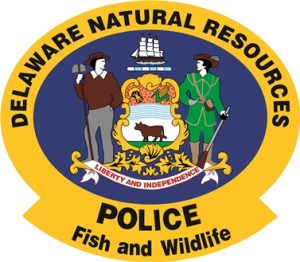DOVER – DNREC’s Division of Fish & Wildlife is seeking volunteer bat spotters to help in locating and counting the state’s bat colonies for the annual Delaware Bat Count. A training session for volunteers will be held from 5:30-7:30 p.m. Saturday, May 14 at the Aquatic Resources Education Center, 4876 Hay Point Landing Road, Smyrna, DE 19977. Weather-permitting, the session will be followed by a visit to a bat maternity colony site for a count demonstration from 7:30-9 p.m. Preregistration for the training is requested and can be done by contacting Alex Heinemann at 302-735-8676 or alexandra.heinemann@delaware.gov.
The Delaware Bat Count is a statewide study documenting population trends and bats that breed in our state. The bat program is always looking for reports of new bat colonies, and for volunteers interested in being part of this important research program. Once volunteers adopt a site, they are asked to count the bats at least twice during the summer.
Delaware is home to nine species of bats, several of which have begun their annual move from winter hibernation sites to summer maternity colonies. Female bats return to their colonies pregnant, and then congregate to give birth and raise their pups. In Delaware, these colonies often take up residence in barns, garages, attics, bat boxes and homes.
Bats feed at night on insects, including many pest species such as mosquitoes. Some eat moths and beetles that damage crops. A study published in Science magazine suggests that bats could be one of the most economically-valuable groups of wildlife to North American farmers, saving them at least $3.7 billion annually by reducing the amount of pesticides needed.
“They’re providing us with a valuable and free service, so it’s to our benefit to have them around,” said Wildlife Biologist Holly Niederriter, Division of Fish & Wildlife.
Even though bats play an important role in our ecosystem, they are often unwanted visitors to homes and outbuildings. A bat exclusion from the building or structure may be warranted in such situations.
It is crucial that bat exclusions be completed before May 15 – when mother bats typically start giving birth – to prevent trapping flightless young inside a building and permanently separating the mothers from their pups, which cannot survive on their own.
For a list of permitted wildlife control operators who can conduct bat exclusions, visit apps.dnrec.state.de.us/NuisanceWildlife/Search.aspx. To review the “Best Management Practices” for excluding bats, go to www.dnrec.delaware.gov/fw/bats/ and check out the “Bats In Buildings” section.
To report a bat colony, or for more information on becoming a bat spotter or on proper bat exclusions, please contact Alex Heinemann or Holly Niederriter at 302-735-8651, or email alexandra.heinemann@delaware.gov or holly.niederriter@delaware.gov.
Media Contact: Joanna Wilson, DNREC Public Affairs, 302-739-9902
Vol. 46, No. 130
